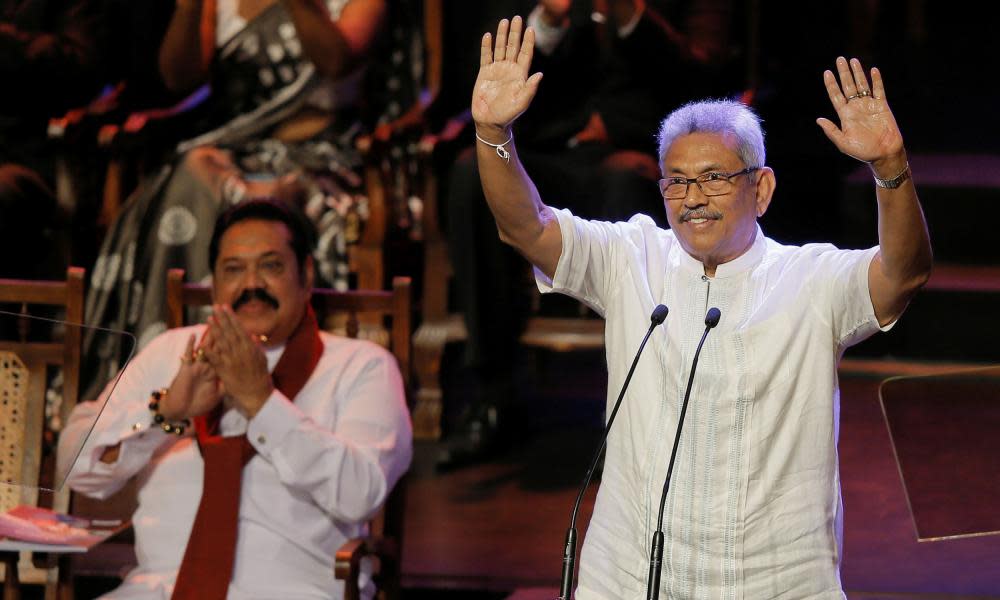The Guardian view on Sri Lanka’s election: danger ahead

There are worse things than disappointment, as Sri Lankans may find out when they go to the polls on Saturday. The 2015 presidential election was heralded as the start of a new era. Strongman Mahinda Rajapaksa was unseated when Maithripala Sirisena, a senior figure within his own party, joined forces with the opposition United National party. The opportunity was largely squandered. The full extent of dysfunction was exposed last year when Mr Sirisena ousted prime minister Ranil Wickremesinghe and installed his old foe Mr Rajapaksa – only for parliament to rebel and the supreme court to reinstate Mr Wickremesinghe. But the true cost became even clearer when Isis-inspired bombings killed 269 people this Easter, and catastrophic intelligence and police failures were subsequently revealed.
The fallout could see the Rajapaksa family return to power. Gotabaya “Gota” Rajapaksa of the Sinhalese-Buddhist nationalist SLPP, who served as defence minister under his brother, is one of two frontrunners. Mr Rajapaksa is subject to lawsuits relating to torture, fraud and corruption. He wants Mahinda, unable to run again due to term limits, as his prime minister. The Rajapaksas oversaw the end to the decades-long civil war, but one UN report suggested as many as 40,000 Tamil civilians died in its final months. Tamil politicians were murdered and thousands of Sri Lankans disappeared.
Mr Rajapaksa has campaigned as a technocratic reformer who will overhaul a struggling economy. He remains a nationalistic tough guy, saying that if he wins he will rescind the government’s agreement with the UN human rights council to investigate alleged war crimes. He has been backed by Buddhist nationalists who have spread anti-Muslim messages. Given the boycotts and mob attacks experienced after the Easter bombings, and the use of social media to stir up hatred, Muslims have every reason to be frightened. Mr Rajapaksa’s rival is Sajith Premadasa of the UNP, the housing minister whose father was president when he was assassinated by a Tamil Tiger suicide bomber in 1993. Mr Premadasa has built on his man-of-the-people image, earning a reputation for competence. He has also stressed security issues.
Mr Premadasa’s path to victory is dependent on ethnic minority turnout as Mr Rajapaksa is set to sweep the ethnic majority Sinhalese vote. Whoever wins, Sri Lanka’s friends should bolster the cause of democracy. This government’s main achievement is its constitutional changes, which cannot be altered without a two-thirds majority in parliament. Legislators and the judiciary have learned that they have real power. Civil society has carved out greater space. Can these gains be protected? No one has especially high hopes should Mr Premadasa win. Many ethnic minorities, who make up 25% of the island’s population, believe victory for the SLPP would bring a clear danger that modest progress would be reversed. They fear not disappointment but what the Rajapaksas would do.

 Yahoo News
Yahoo News 
